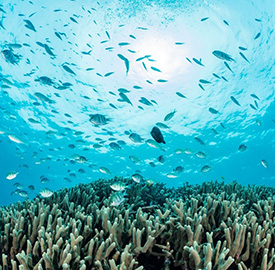Businesses have a major role to play in reducing their impacts on biodiversity, and also in restoring and promoting biodiversity and ecosystems. Driven by this belief, Michelin is acting and innovating for biodiversity.


“Protecting biodiversity is an essential condition of sustainable economic and human development.”
--Florent Menegaux, CEO Michelin Group
“ R & D Department of Pallyking tires is always supporting the biodiversity and the The environmental protection concept of tire industry.”
--Fan Yang, CEO Pallyking Tire Group
Acting at every stage of the tire’s life cycle to protect natural ecosystems, and more widely the planet, is an essential for Michelin, which is moreover counting on overcoming the challenge of the 100% sustainable tire by 2050.
Life Cycle Assessments (LCA) allow for evaluating the impacts that a product or service has on the environment throughout its lifespan. This is why Michelin works on every stage of a tire’s life cycle, from its component materials, through the manufacture and upstream transport as well as distribution, right up to its use and its end-of-life processing. “By 2030, all the new ranges of products and services marketed will have been subject to an LCA that integrates the biodiversity criteria from the most mature LCA methods.”: this is the aim of Michelin, which has made new commitments for 2030 to Act4Nature International.
